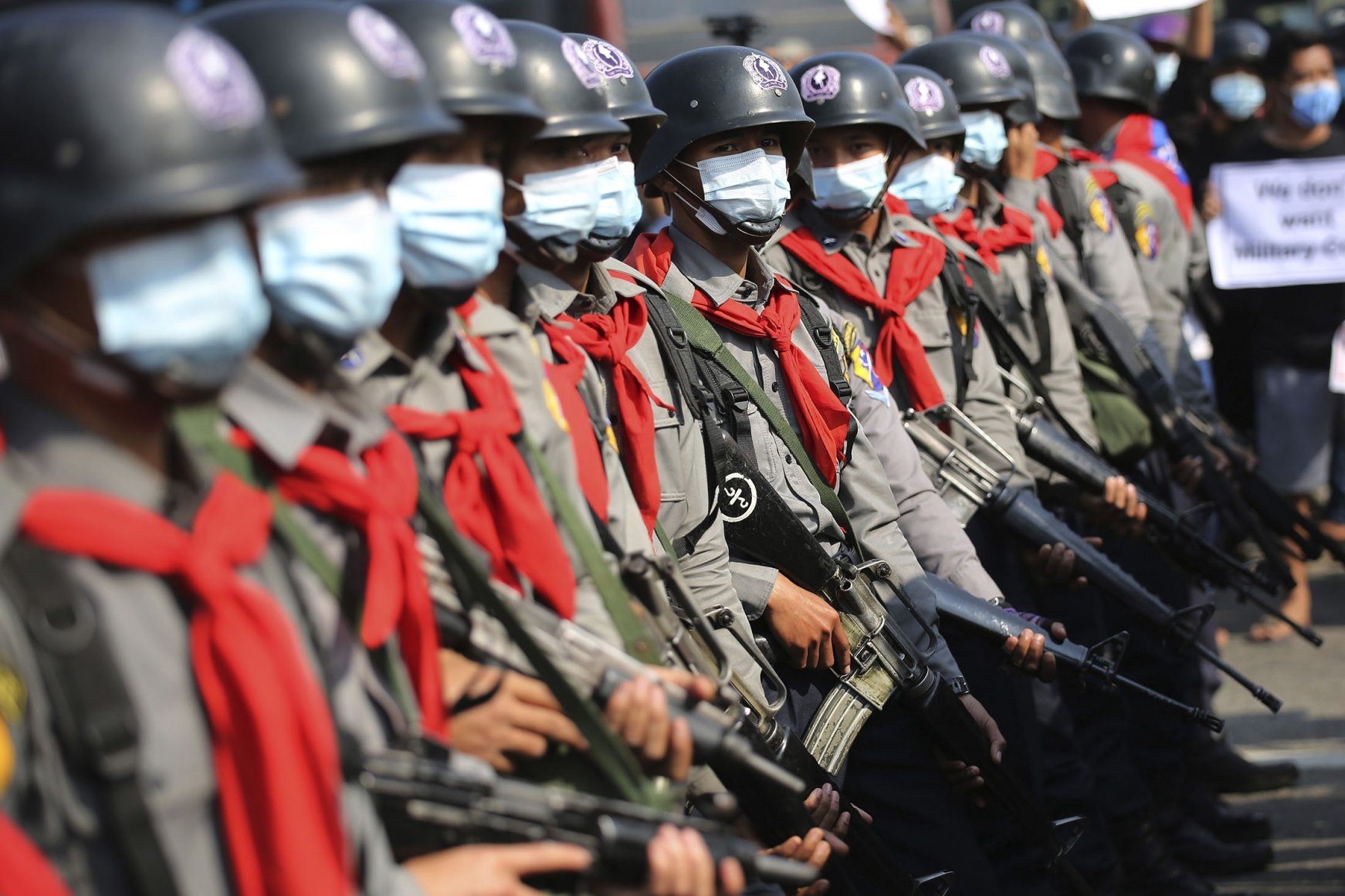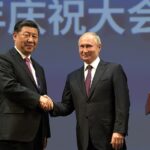OPINIONS
Date: 27 December 2023 Author: János Hajdu
Disinformation, Hate Speech and Power
Disinformation (against a group of people), hate speech and the acquisition of power have a special relationship. During the History we can see how these three elements cooperate and how can the disinformation and hate speech lead to a coup or a successful election.

If we want to see a nowadays example just look at Myanmar (Burma), where a coup happened in 20211. Four years before the coup we can discover disinformation and hate speech. Both helped for the military (Tatmadaw) in the coup2.
In 2011 the military de jure gave up the leadership of the country (de facto just in 2015) and Myanmar could start its new journey towards democracy and economic growth3. But the military wanted back the country and in 2017 finally they got a chance. Ashin Wirathu (“Bin Laden of Burma”) a radical Buddhist monk and his radical Buddhist movement the 969 started a disinformation and hate speech campaign against one of the minorities of Myanmar, Rohingyas4. They started to spread false information about Rohingya people and said the people they have to defend the countries against the Rohingya people.
The military recognized their chance and grabbed it. Maybe it is a little bit unusual, but they exactly started to create entertainment pages in Facebook5. When the pages reached a certain amount of followers, they started to share of the hate speeches against the Rohingya and when there were enough fear and hate in the people who started attacks against Rohingya’s villages, the military immediately joint and killed thousands6 of Rohingya people and who survived it had to leave the country. The 969 created a perfect demonization and when the military respond to it the people who feared from the Rohingya or hated them started to like the military. It was a perfect preparation for the coup (of course, it also required the conjunction of other factors like inactivity of China7).
We can discover a lot of similar event in the history. For example, when Russia tried to whitewash its war in advance before they started it, when USA got claim against Iraq8 or when Hitler prepared for get the power above Germany9. Certainly, sometimes it fails like how Russia failed it. How can the disinformation and hate speech be successful in the process of acquisition of power?
Susan Benesch gave us the answer10. She aimed to specify the hate speech, but during this he specify the pillars of a successful power acquisition.
1. An effective speaker with strong influence over the audience.
2. A vulnerable, easily influenced audience whose grievances and fears the speaker can mobilize.
3. A speech that clearly advocates for violence.
4. Favourable social or historical conditions for fostering a violent atmosphere.
5. A dissemination tool that is inherently impactful, for example, because the audience in question relies solely or primarily on it as a source of news.
In the case of Myanmar we can see all of them. The only media for spreading news was the Facebook11. The country just were opened before the globalization and multinational companies and the Facebook grabbed his chance immediately and made a deal with mobile internet companies. People could use the Facebook without use their priceless mobile internet and it was preinstalled12. In 2017 already 25% of people used internet in the country and 23% of them used Facebook13. Who used internet used Facebook too and it became the most important source of the news. Ashin Wirathu and the military understand how they can use it.
Luke T. Ziegler14 wrote about how Nazis could get the power in Germany. One of their main tactic was the fearmongering against the communist with disinformation (it was helped by the military – “Stab in Back”) and hatemongering against Jews with disinformation and hate speech. They used the old and new media together to reach as many people as they can. When they answered the this fear and hate in the people, they became popular. Of course, they couldn’t reach the majority, but they could convinced enough for gain power. It is an important point because the disinformation and hate speech never can convince everyone, but how Benesh said if there is a “Favourable social or historical conditions for fostering a violent atmosphere” the entity how use it can get the power over a country.
We can see the same method in Turkish elections15. The bad economy situation and the Turkish nostalgy about the old empire, what always cause a fear about new collapses, resonate with the demonization of Kurds16. And there we can discover some relationship between economy and effectiveness of hate speech and the urbanization and effectiveness of hate speech. If we look at the election results, we can see the support of the ruling party stronger on the economically less developed and less urbanized areas or the less developed part of the urbanized areas17. The financial stability can undermine the disinformation and hate speech, but if someone in a bad financial situation or a crisis just happening like the Great Depression people always want someone how is the reason for their bad situation which make easy to make disinformation about a group of people which different. In order to alleviate the accumulated tension, people will believe in the information and the hate speech will mobilize it. I must point out again not everyone, not the majority, but it can mobilize enough people for their goals. For example, in Turkey it is enough for the winning. The other thing is the urbanization. Louis Wirth is who pointed out in a city people will be more opened to the different persons and usually they don’t have strong relation with a community. But in a village is more homogeneous and it is more natural to not grow up different persons what makes easy to see an enemy in different groups18. Of course, it changes with the globalization, but it still typical in countries like Myanmar.
So the disinformation need for a different groups from the others (it can be another religious, nationality, country etc). What can be triggered by a crisis, for example, an economic crisis and when the people start to believe the false information the hate speech can mobilize the crowd and if the speaker can grab the moment he can turn it to a power over the community.
Sources:
1 Amy McKenna: 2021 Myanmar coup d’état – https://www.britannica.com/event/2021-Myanmar-coup-d-etat
2 Noel M. Morada: Hate Speech and Incitement in Myanmar before and after the February 2021 Coup (2023) – Global Responsibility to Protect – https://brill.com/view/journals/gr2p/15/2-3/article-p107_003.xml
3 Ibidem
4 Ibidem
5 Caroline Crystal: Facebook, Telegram, and the Ongoing Struggle Against Online Hate Speech (2023) – Carneige – https://carnegieendowment.org/2023/09/07/facebook-telegram-and-ongoing-struggle-against-online-hate-speech-pub-90468
6 Ibidem
7 Why Is China Silent Towards the Military Coup in Myanmar? (2021) – https://csps.gmu.edu/2021/04/30/why-is-china-silent-towards-the-military-coup-in-myanmar/
8 Raymond Hinnebusch: The American Invasion of Iraq: Causes and Consequences (2007) – http://sam.gov.tr/pdf/perceptions/Volume-XII/spring-2007/Raymond-Hinnebusch.pdf
9 Ziegler, Luke T. (Spring 2022) “A House Divided: How Hitler Exploited the Politics of Weimar Germany,”Tenor of Our Times: Vol. 11, Article 18. Available at: https://scholarworks.harding.edu/tenor/vol11/iss1/18
10 Susan Benesch: „The Dangerous Speech Project”
11 Human Rights Council, Rep. of the Independent Int’l Fact-Finding Mission on Myanmar, U.N. Doc. A/HRC/39/64, ¶ 74 (Sept. 12, 2018) [hereinafter FFM Report Summary]
12 Caroline Crystal: Facebook, Telegram, and the Ongoing Struggle Against Online Hate Speech (2023) – Carneige – https://carnegieendowment.org/2023/09/07/facebook-telegram-and-ongoing-struggle-against-online-hate-speech-pub-90468
13 https://datareportal.com/digital-in-myanmar
14 Ziegler, Luke T. (Spring 2022) “A House Divided: How Hitler Exploited the Politics of Weimar Germany,”Tenor of Our Times: Vol. 11, Article 18. Available at: https://scholarworks.harding.edu/tenor/vol11/iss1/18
15 Egeresi Zoltán – Pénzváltó Nikolett: Az AKP útja az elnöki rendszerről szóló népszava- zásig: rezsimépítés Törökországban (2002−2017) – Nemzet és Biztonság – http://www.nemzetesbiztonsag.hu/cikkek/nb_2017_3_08_egeresi_zoltan-penzvalto_nikolett_-_az_akp_utja_az_elnoki_rendszerrol_szolo_nepszavazasig_rezsimepites_torokorszagban.pdf?fbclid=IwAR2lA9VAPuPofYVcjFIL-hSo03i2p5KKb6BB29iiZs1flrpPK9ulJeQFnQI
16 Gal Ariely. (2021) Ethno-national divisions in Turkey and Israel: a comparison of system support. Turkish Studies 22:5, pages 694-722. https://www.tandfonline.com/doi/full/10.1080/19448953.2018.1497750
17 Cem Başlevent: The impact of urbanization on political outcomes in Turkey (2013) – The Economic Research Forum – https://erf.org.eg/publications/impact-urbanization-political-outcomes-turkey/?tab=undefined&c=undefined
18 Wirth, L. (1938). Urbanism as a Way of Life. The American Journal of Sociology, 44, 1-24. https://doi.org/10.1086/217913
Support Us
If content prepared by Warsaw Institute team is useful for you, please support our actions. Donations from private persons are necessary for the continuation of our mission.
All texts published by the Warsaw Institute Foundation may be disseminated on the condition that their origin is credited. Images may not be used without permission.

















